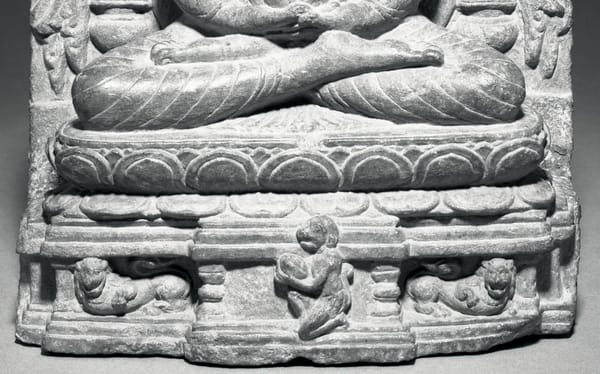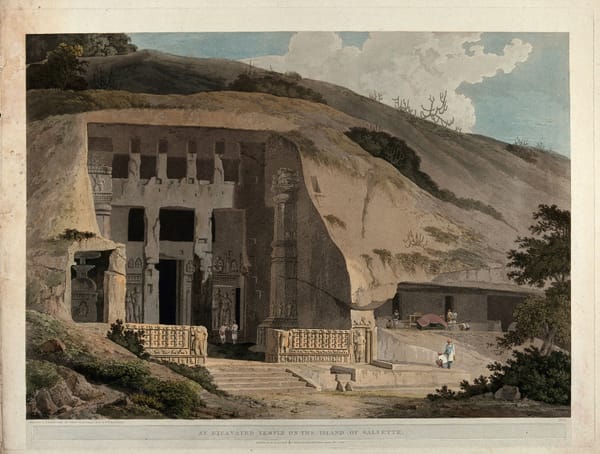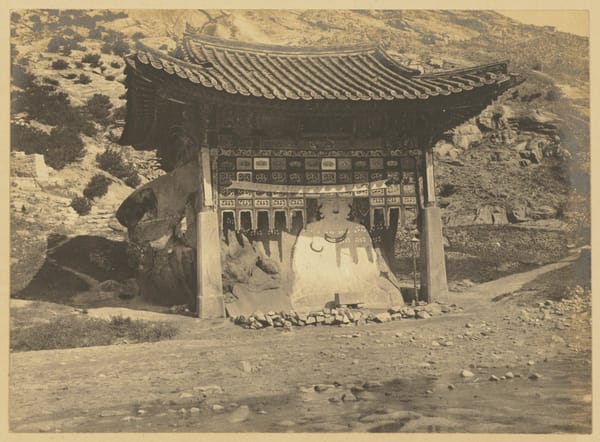Venerable Piliṇḍavaccha
aka Piliṇḍiyavaccha, Pilindavaccha, Pilindivaccha
Pilindavaccha, Foremost, Dear and Pleasing to the Gods (Devapiyamanāpa)
The Foremost and the Eighty Great Disciples
These are the foremost | 215. Pilindavaccha for adoration by the gods.
Aṅguttara Nikāya | 1. Ekakanipāta | XIV. Etadaggavagga | 3. Tatiya vagga.
Udāna 3.6 | Pilindavaccha (Pilindavaccha Sutta)
While in the Bamboo Wood of Rājagaha at the Squirrel’s Feeding Place, Ven. Pilindavaccha went about calling the monks outcasts. When the monks report this to the Buddha, he investigates and reports that Ven. Pilindavaccha’s past lives, and not inner hatred, that are the cause for his behavior.
A Guide to the Udāna by Ernesto Fernandez
Thus I heard: At one time the Gracious One was dwelling near Rājagaha, in Bamboo Wood, at the Squirrels’ Feeding Place. Then at that time venerable Pilindivaccha accosted monks with words of contempt.
Then many monks went to the Gracious One, and after going and worshipping the Gracious One, they sat down on one side. While sat on one side those monks said this to the Gracious One: “Venerable Pilindivaccha, reverend Sir, accosts monks with words of contempt.”
Then the Gracious One addressed a certain monk, saying: “Please go, monk, and with my word address the monk Pilindivaccha, saying: ‘The Teacher, friend Pilindivaccha, calls you.’ ”
“Yes, reverend Sir,” said that monk, and after replying to the Gracious One, he went to venerable Pilindivaccha, and after going, he said this to venerable Pilindivaccha: “The Teacher, venerable friend, calls you.”
udāna 3.6 | pilindivacchasuttaṃ 26 | The Discourse about Pilindivaccha
Responding, "As you say, my friend," to the monk, Ven. Pilindavaccha went to the Blessed One and, on arrival, having bowed down to him, sat to one side. As he was sitting there, the Blessed One said to him, "Is it true, Pilindavaccha, that you go around addressing the monks as if they were outcastes?"
"Yes, lord."
Then the Blessed One, having directed attention to Ven. Pilindavaccha's previous lives, said to the monks, "Don't take offense at the monk Vaccha. It's not out of inner hatred that he goes around addressing the monks as if they were outcastes. For 500 consecutive lifetimes the monk Vaccha has been born in brahman families. For a long time he has been accustomed to addressing people as outcastes. That's why he goes around addressing the monks as if they were outcastes."
Ud 3.6 PTS: Ud 28 | Pilinda Sutta: Pilinda | translated from the Pali by Thanissaro Bhikkhu
Health, Medicine, and a Rule
In [Mahavagga VI 13.1-13.2] there is an account of a bhikkhu (Pilindavaccha) who was afflicted with wind. On the advice of a physician, the Buddha initially permitted as one of the treatments: "I allow you, monks, to mix strong drink in a decoction of oil.” However, a group of monks subsequently became intoxicated so the Buddha refined this rule to: “I allow you, monks, if neither the colour nor the smell nor the taste of strong drink appears in any decoction of oil, to drink oil mixed with strong drink if it is like this” (Horner 1951:278). However, if the concoction was too strong, the Buddha allowed it to be applied externally: "I allow you, monks, to employ it as an unguent"” (Horner 1951:278).
Now at that time the venerable Pilindavaccha had a head-ache … “I allow, monks, a small quantity of oil for the head.” He did not get better … “I allow, monks, (medical) treatment through the nose”. His nose ran … “I allow, monks, a nose-spoon.”
...
They poured it up the nose in uneven quantities. … “I allow, monks, a double nose-spoon.” He did not get better … “I allow you, monks, to inhale steam.” So they inhaled it after they had lit a wick. It burnt their throats … “I allow you, monks, a tube for the steam.
...
Now at that time the venerable Pilindavaccha had an affliction of wind. Physicians spoke thus: “Oil must be boiled.” … “I allow, monks, a decoction of oil.” Now strong drink had to be mixed in that decoction of oil. “I allow you, monks, to mix strong drink in a decoction of oil.” Now at that time the group of six monks boiled oils mixed with too much strong drink. Having drunk these, they were intoxicated. “Monks, oil mixed with too much strong drink should not be drunk. Whoever should (so) drink should be dealt with according to the rule. I allow you, monks, if neither the colour nor the smell nor the taste of strong drink appears in any decoction of oil, to drink oil mixed with strong drink if it is like this.”
Now at that time monks came to have much boiled oil mixed with too much strong drink. Then it occurred to these monks: “Now what course of conduct should be followed when there is oil mixed with too much strong drink?”… “I allow you, monks, to employ it as an unguent.” Now at that time the venerable Pilindavaccha came to have a quantity of boiled oil, but there was no receptacle for oil. “I allow you, monks, three kinds of vessels: a copper vessel, a wooden vessel, a vessel (made of) fruit.”
Now at that time the venerable Pilindavaccha had rheumatism in the limbs. “I allow, monks, the sweating-treatment.” He got no better … “I allow, monks, sweating by the use of all kinds of herbs.” He got no better. “I allow, monks, the great sweating.” He got no better. “I allow, monks (the use of) hemp-water.” He got no better. “I allow monks, (the use of) a water-vat.” “I allow the application of the sweating treatment (sedakammakaraṇa), having got into a vessel or vat filled with hot water.”
Now at that time the venerable Pilindavaccha had rheumatism in the joints. “I allow you, monks, to let blood.” He got no better. “I allow you, monks, having let blood, to cup with a horn.” Now at that time the venerable Pilindavaccha’s feet came to be split. “I allow you, monks, an unguent for the feet.” He got no better. “I allow you, monks, to prepare a foot-salve.” Now at that time a certain monk came to have boils. “I allow, monks, treatment with a lancet.” There was need of astringent water. “I allow, monks, astringent water.” There was need of sesamum paste. “I allow, monks, sesamum paste.”
There was need of a compress. “I allow, monks, a compress.” There was need of a piece of cloth for tying over the sore. “I allow, monks, a piece of cloth for tying over the sore.” The sore itched. “I allow you, monks, to sprinkle it with mustard-powder.” The sore festered. “I allow you, monks, to make a fumigation.” The flesh of the sore stood up.“I allow you, monks, to cut it off with a piece of salt-crystal.” The sore did not heal. “I allow, monks, oil for the sore.” The oil ran. They told this matter to the Lord. He said: “I allow, monks, a linen bandage (and) every treatment for curing a sore.”
theravāda vinayapiṭaka | khandhaka (mahāvagga) | 6. Medicine (Bhesajja) | The story of Pilindavaccha
Support
Aramikagama: The name given to the village in which lived the five hundred park keepers who were given by Bimbisara to the Elder Pilindavaccha.
It was near Rajagaha and was also called Pilindagama. Pilindavaccha depended for his alms on the residents of this village. Vin.i.207-8; iii.249.
Then King Seniya Bimbisāra of Magadha, having promised the venerable Pilindavaccha a monastery attendant, (but) having forgotten, having recalled it after a time, addressed a chief minister who was concerned with all the affairs, saying: “My good sir, has that monastery-attendant whom I promised to the master been given?”
“Your majesty, a monastery attendant has not been given to the master.”
“My good sir, how long is it since it was considered?”
Then that chief minister, having counted up the days, spoke thus to King Seniya Bimbisāra of Magadha: “It is five hundred days, your majesty.’
“Well then, give five hundred monastery attendants to the master.”
“Yes, your majesty,” and the chief minister having answered King Seniya Bimbisāra of Magadha in assent, bestowed five hundred monastery attendants on the venerable Pilindavaccha, and a distinct village established itself. They called it “The Village of the Monastery Attendants” and they also called it “Pilinda Village”.
Pi Tv Kd 6: Medicine (Bhesajja) (English) - Khandhaka - SuttaCentral
Powers, the Five Kinds of Medicine, and a Rule
Now at that time the venerable Pilindavaccha frequented families in that village. Then the venerable Pilindavaccha, having dressed in the morning, taking his bowl and robe, entered Pilinda Village for almsfood.
Now at that time there came to be a festival in this village; young girls wearing ornaments, adorned with garlands, were celebrating it. Then the venerable Pilindavaccha as he was walking for almsfood on unbroken round in Pilinda Village, approached the dwelling of a certain monastery attendant; having approached, he sat down on the appointed seat. Now at that time the daughter of the monastery attendant’s wife, having seen other little girls wearing ornaments, adorned with garlands, cried and said: “Give me a garland, give me an ornament.”
Then the venerable Pilindavaccha said to that monastery attendant’s wife: “Why is this little girl crying?”
“Honoured sir, this little girl is crying because, having seen other little girls wearing ornaments, adorned with garlands, she says: ‘Give me a garland, give me an ornament.’ Whence is there a garland for us who are poor, whence an ornament?”
Then the venerable Pilindavaccha, having taken a roll of grass, spoke thus to that monastery attendant’s wife: “Now set this roll of grass on this little girl’s head.” Then that monastery attendant’s wife, having taken that roll of grass, set it on that little girl’s head. It became a golden chaplet, beautiful, good to look upon, charming; there was no golden chaplet like it even in the king’s women’s quarters. People spoke thus to King Seniya Bimbisāra of Magadha:
“Your majesty, in the house of a certain monastery attendant there is a golden chaplet, beautiful, good to look upon, charming; there is no golden chaplet like it even in your majesty’s women’s quarters. As he is poor, where (could he have got it) from? Undoubtedly it was taken by theft.” Then King Seniya Bimbisāra of Magadha had that monastery attendant’s family imprisoned.
And a second time did the venerable Pilindavaccha, having dressed in the morning, taking his bowl and robe, enter Pilinda Village for almsfood. As he was walking in Pilinda Village on unbroken round for almsfood he approached the dwelling of that monastery attendant; having approached, he asked the neighbours: “Where has this monastery attendant’s family gone?”
“Honoured sir, they have been imprisoned by the king on account of that golden chaplet.”
Then the venerable Pilindavaccha approached the residence of King Seniya Bimbisāra of Magadha; having approached he sat down on the appointed seat. Then King Seniya Bimbisāra of Magadha approached the venerable Pilindavaccha; having approached, having greeted the venerable Pilindavaccha he sat down at a respectful distance. The venerable Pilindavaccha spoke thus to King Seniya Bimbisāra of Magadha as he was sitting down at a respectful distance:
“How is it, sire, that the monastery attendant’s family is imprisoned?”
“Honoured sir, in that monastery attendant’s house there was a golden chaplet, beautiful, good to look upon, charming; there is no golden chaplet like it even in our women’s quarters. Where (could he have got it) from, as he is poor? Undoubtedly it was obtained by theft.”
Then the venerable Pilindavaccha exercised volitional force, and said: “The palace of King Seniya Bimbisāra of Magadha is golden,” and it became made all of gold. He said: “Now, sire, from where have you got so much gold?”
Saying: “I understand, honoured sir, this is the master’s majesty of psychic power,” he set free the monastery attendant’s family.
People, delighted, full of satisfaction because they heard that a state of further men, a wonder of psychic power had been shown by master Pilindavaccha to the king and his retinue, presented the five (kinds of) medicine to the venerable Pilindavaccha, that is to say ghee, fresh butter, oil, honey and molasses. Now the venerable Pilindavaccha was customarily a receiver, so whenever he received the five (kinds of) medicine he gave them away among his company. And his company came to live in abundance; whatever they received, filling pots and pitchers, they put them away, and filling water strainers and bags, they hung them up in the windows. These (pots, etc.) leaked, and the dwelling-places became beset and overrun by rats. People, having seen (this) as they were touring the dwelling-places, looked down upon, criticised, spread it about, saying: “These recluses, sons of the Sakyans, are storing up goods indoors, like King Seniya Bimbisāra of Magadha.”
Monks heard these people who were … spreading it about. Those who were modest monks … spread it about, saying: “How can these monks strive after abundance like this?” Then these monks told this matter to the Lord. He said:
“Is it true, as is said, monks, that monks are striving after abundance such as this?”
“It is true, Lord.” Having rebuked them, having given reasoned talk, he addressed the monks, saying:
“Those medicines which may be partaken of by ill monks, that is to say ghee, fresh butter, oil, honey, molasses—having accepted these, they may be used as a store for at most seven days. He who exceeds that (period) should be dealt with according to the rule.”
Pi Tv Kd 6: Medicine (Bhesajja) (English) - Khandhaka - SuttaCentral
And
Ven. Pilindavaccha uses his psychic powers to retrieve a pair of kidnapped children. The Buddha states that this entails no penalty because such a thing lies in the province of those with psychic power. The Vinaya-mukha, in discussing this case, takes it as a precedent for saying that if a bhikkhu returns a stolen
article to its legal owner, there is no offense. The Buddha’s statement, though, was probably meant to discourage bhikkhus without psychic powers from getting directly involved in righting wrongs of this sort. If a bhikkhu without psychic powers happens to learn of the whereabouts of stolen goods, kidnapped children, etc., he may inform the authorities, if he sees fit, and let them handle the situation themselves. However, for safety’s sake, a bhikkhu living in a wilderness frequented by thieves would be wise not to be perceived as siding either with the thieves or the authorities.
The Buddhist Monastic Code I | The Patimokkha Rules
Translated & Explained by Thanissaro Bhikkhu
v.l. Piliṇḍivaccha, Piliṇḍiyavaccha.– He was a brahmin of Sāvatthi, born before the Buddha’s Enlightenment. Piliṇḍa was his personal name, Vaccha being that of his family. He became a recluse and learnt the Cūḷa Gandhāra charm (vijjā), but, when the Buddha appeared, the charm refused to work. Having heard that the Mahā Gandhāra charm prevented the working of the Cūḷa Gandhāra charm, and having concluded that the Buddha knew the former, he entered the Order at the Buddha’s suggestion, in order to acquire it. The Buddha gave him exercises in meditation, and he became an Arahant.
Certain devas who had been born in the deva world as a result of Pilinda’s guidance in a former birth, out of gratitude, waited on him morning and evening. He thus became famous as being dear to the devas, and was declared by the Buddha to be chief among such monks
define: pilindavaccha - SuttaCentral
Pilinda excelled in communication with heavenly beings.
"Maha-Moggallana", by Hellmuth Hecker. Access to Insight (Legacy Edition), 30 November 2013



